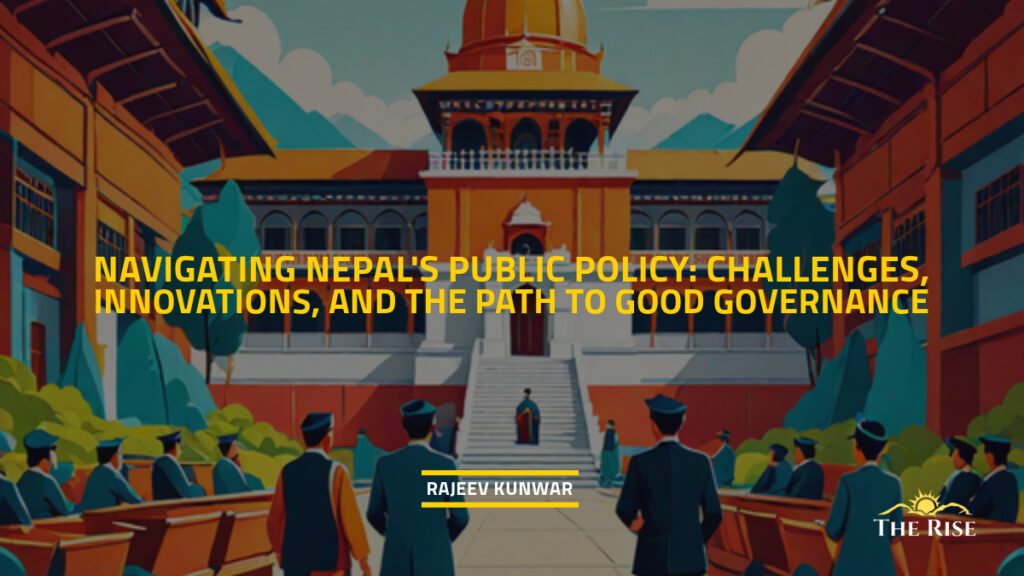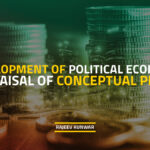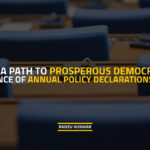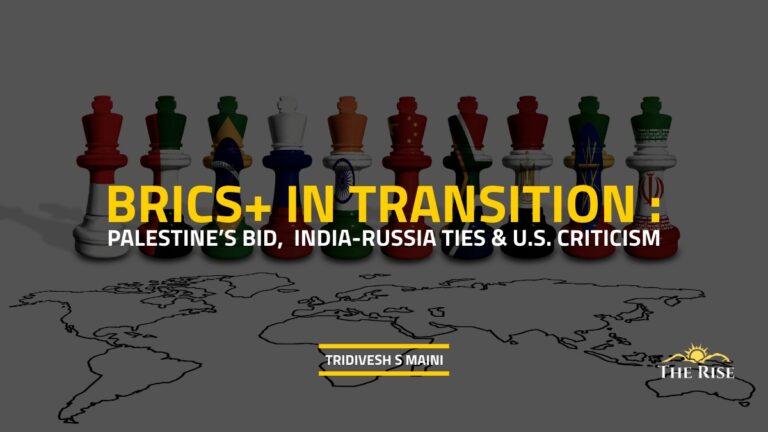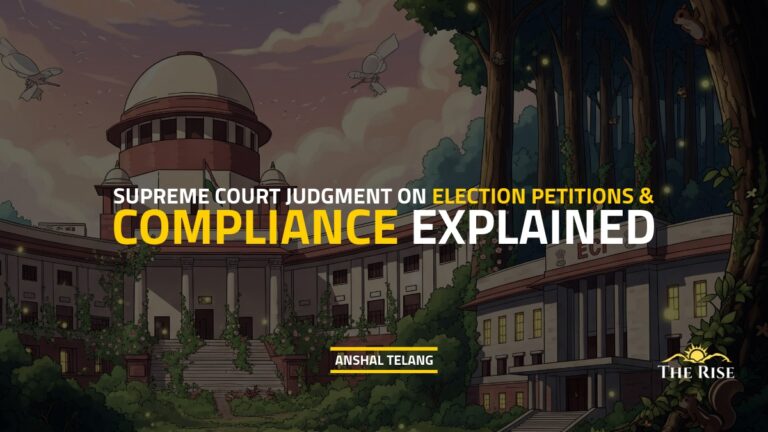If the state’s government and administrative activities are committed and meticulously managed, the living standards and well-being of the people can be significantly improved.
Public policy is an essential policy related to prudent and timely management of public and international affairs. It includes the appropriate policies required under the government’s division of functions according to each ministry’s job description, as well as foreign, security, and strategic policies. Public policy provides the guidance needed to transform the public interest into a logical trend and timely action. Its objective is to promote a political community or system by maintaining proper regulation, control, and balance of public affairs. Public policy determines clear thinking, behavior, and activities to achieve common objectives, goals, and missions for the smooth running of public governance and administration. Effective public management within public policy is a tool for achieving productive and beneficial outcomes. Public policy documents incorporate lessons from the past, address current needs, and anticipate future demands at national, provincial, and local levels.
In Nepal, the directive principles and policies of the state mentioned in the Constitution are the primary sources of public policy. Based on the constitution, it is easier to formulate expanded or advanced explanatory policies. By creating laws related to specific policy areas in alignment with constitutional provisions, problems in public affairs can be addressed, solved, and improved. Despite ongoing discussions and debates about public policy, there is a perception that current policies are often seen as complete without a solid basis for rejection or criticism. There is a widespread perception that the changing Nepali government is neglecting policy formulation and implementing existing policies poorly.
The government of Nepal is grappling with policy issues due to new governance and administrative challenges, compounded by the absence of established structural or organizational units. There is a lack of appropriate diagnoses, remedies, and solutions. When the service provider acts as the regulator, impartiality, autonomy, and integrity can be compromised according to the code of conduct. The regulation of private sector investment and profit over public institutions has exposed unaccountable, opaque, and corrupt public bodies and officials, leading to scandals in morality and governance.
Regarding public policy authority, there is a failure to implement the full mandate effectively, raising doubts about the efficacy of ad hoc and minor decisions in promptly resolving issues in specific work areas. Even though temporary and permanent government bodies (elected executives and administrative apparatus) aim for positive progress, enabling policy consent and governance, administrative dynamics might still face obstacles. A strong, reliable working relationship between leadership and policy is crucial for good governance, sustainable development, and a stable political system with sovereignty reaching the grassroots level. In an environment of suspicion, speculation, and mistrust, achieving political, civil, and national prosperity feels distant. When the wait-and-see policy ends, political and administrative imbalance, instability, and unrest may naturally lead to symptoms of discontent among citizens, voters, and the general populace.
Management of public policy in this context is gradually creating an environment that should not be overlooked. Public policy includes priorities for human rights, human development, and human security, whether directly or indirectly. It emphasizes comprehensive progress and sustainability. Public policy aims to address both longstanding issues and new challenges, evolving with innovation. However, innovation without effective implementation can lead to indiscipline. Therefore, it is crucial to maintain governance structures to reform policies comprehensively, including the constitution, laws, rules, and regulations. Relying solely on newspapers and information for public policy formulation is misguided. Instead, public policy should be based on factual data, addressing the government’s daily challenges and service delivery issues.
For effective public policy formulation, analysis, and implementation, political and administrative will is essential. This includes achieving objective and subjective measurements, coordination, maturity, and reliability. Positive politics and sound policies can resolve disappointment, dissatisfaction, and negative sentiments. Embracing change with the right mindset and work style for change management can lead to significant and swift benefits. The current changes in South Asia, unimaginable during the Cold War, highlight the potential for progress. In the twenty-first century, the integration of modern tools, technology, and global dynamics within new political and administrative frameworks is crucial. This approach will enhance national and local goods and services, including infrastructure development.
Social competition, people-oriented governance, human rights advocacy, personal freedom, and liberal democracy are being practiced in harmony with contemporary history. The ongoing journey of modern political history reflects the inherent nature of people, society, and the nation, which are responsible and accountable for their defense. Despite historical upheavals, aligning with trends, development, and aspirations for progress and advancement is imperative. The challenges of the past, the struggles of today, and the pursuit of a better tomorrow are a continuous process.
Individuals or leaders may fail or deviate, but they face their destiny, shaped by their actions. An unyielding effort is the secret to reaching the pinnacle of success. Fourteen years ago, I questioned what to do if personified states or statesmen fail to deliver public policy. Reflecting on resolve, principles, and positive energy, I believe that resolute leadership can revive the state’s vitality promptly. If the state’s government and administrative activities are committed and meticulously managed, the living standards and well-being of the people can be significantly improved. Effective implementation of public policy will steer in the right direction, enhancing human capital, social capital, and the legitimacy of the democratic state and government. This is my vision for effective public policy, ensuring good governance and viable options on short notice.
Disclaimer: The views expressed in this article are of the author solely. TheRise.co.in neither endorses nor is responsible for them. Reproducing this content without permission is prohibited.
About the author
Mr. Kunwar is a politics and international relations analyst based in Kathmandu.

